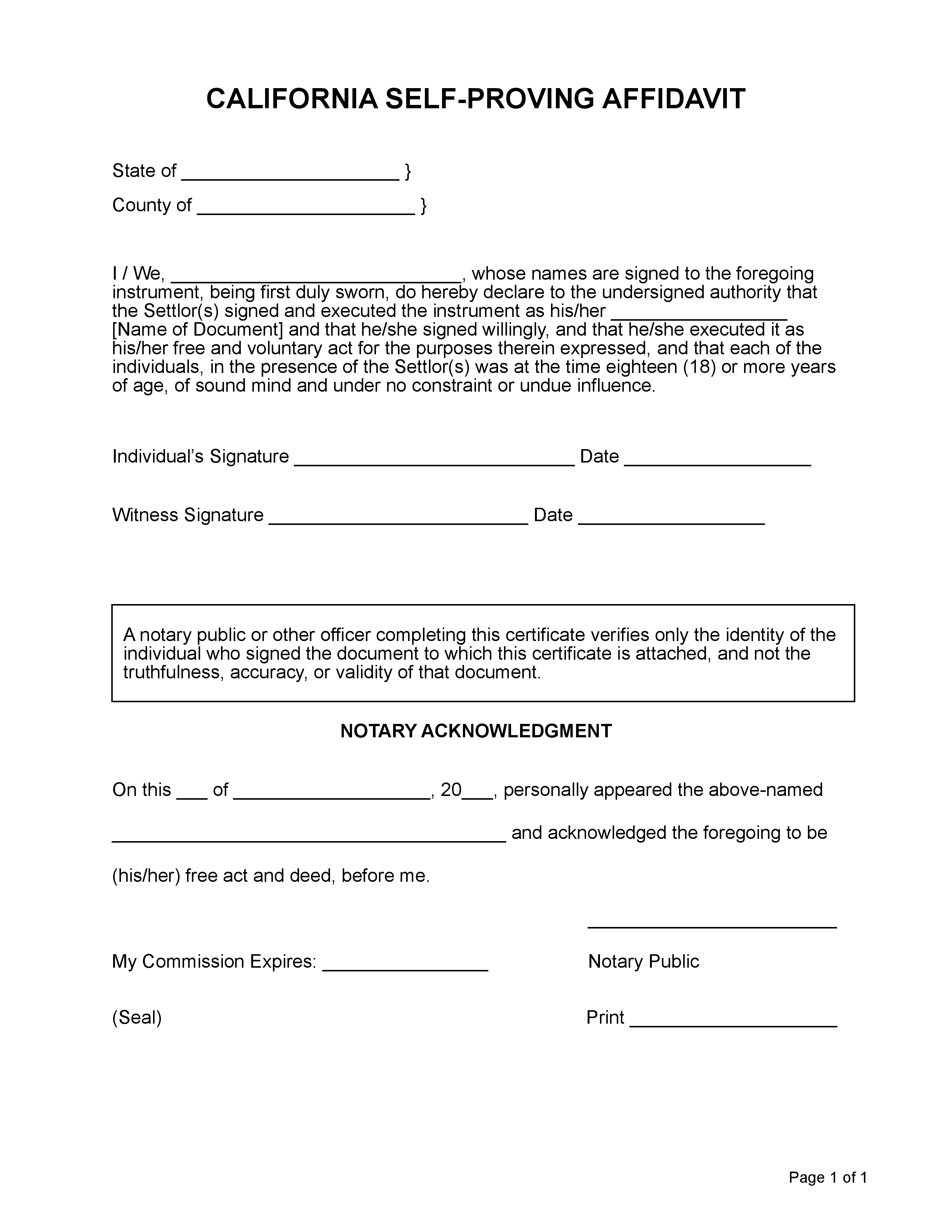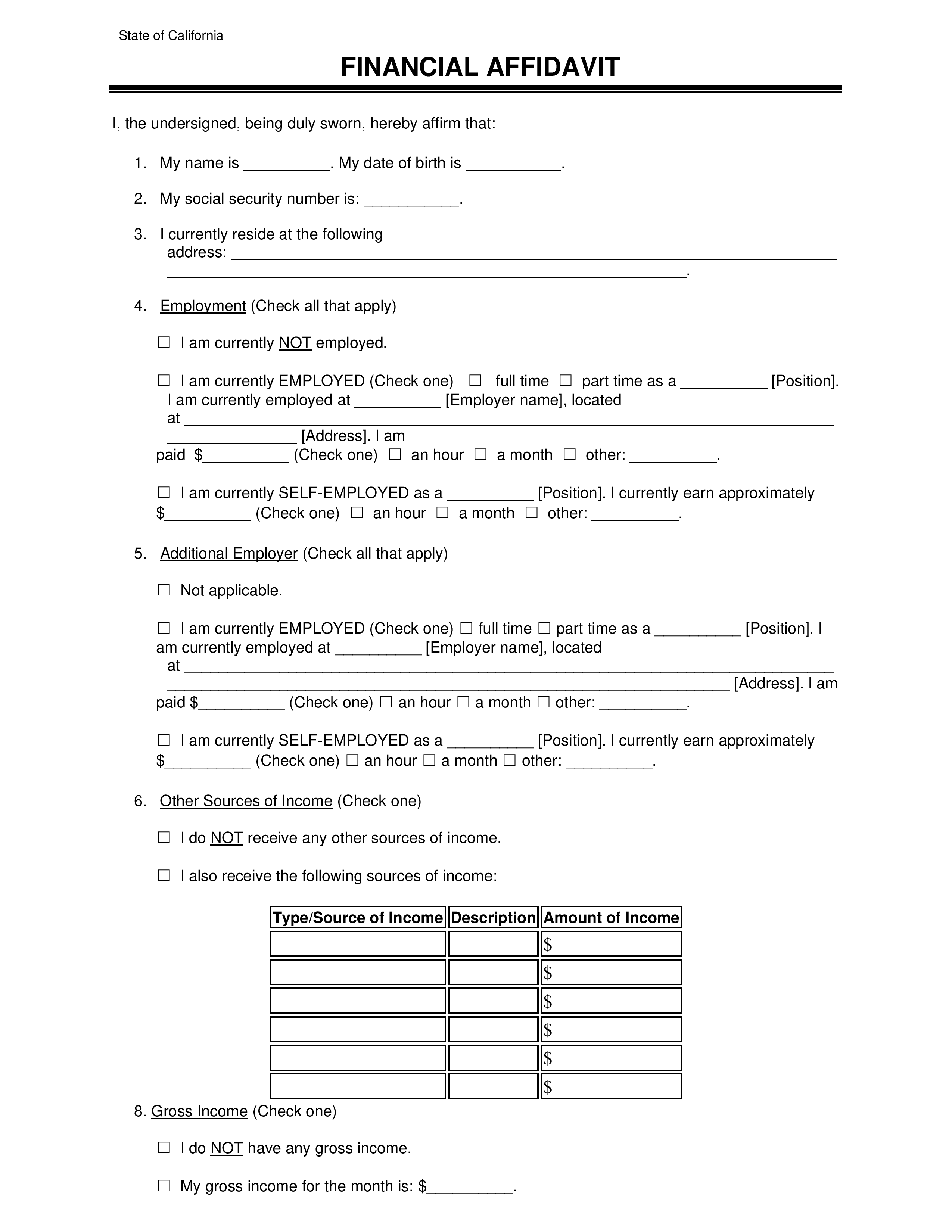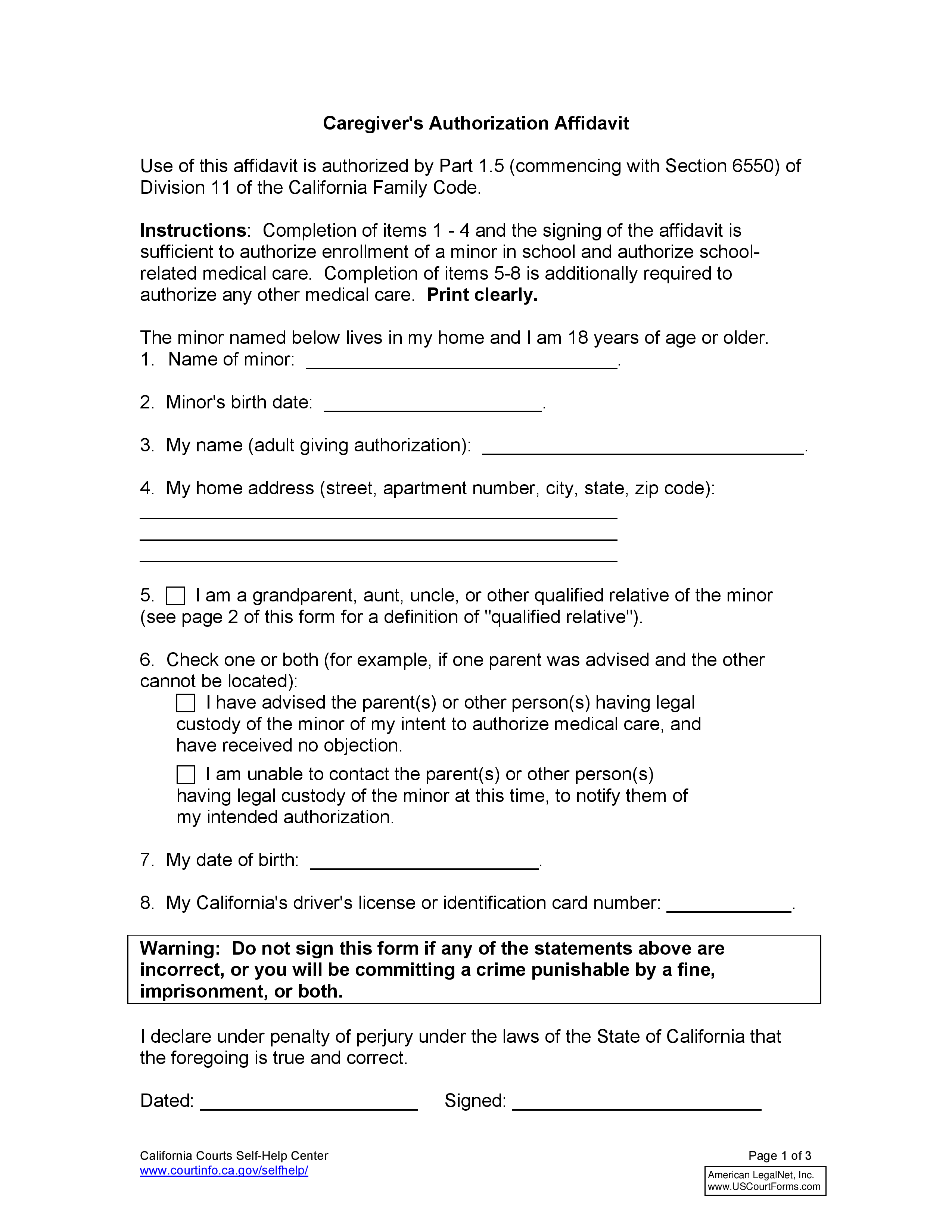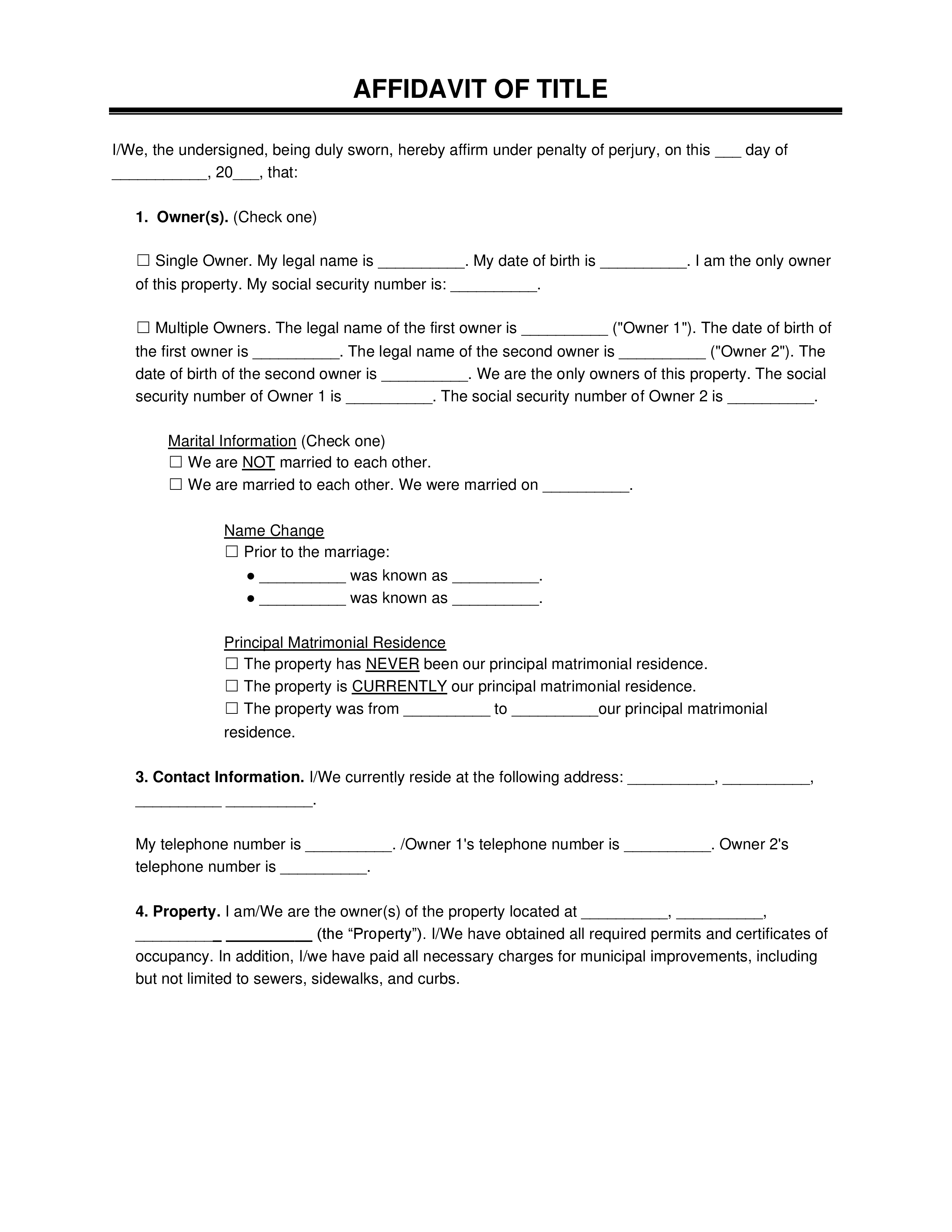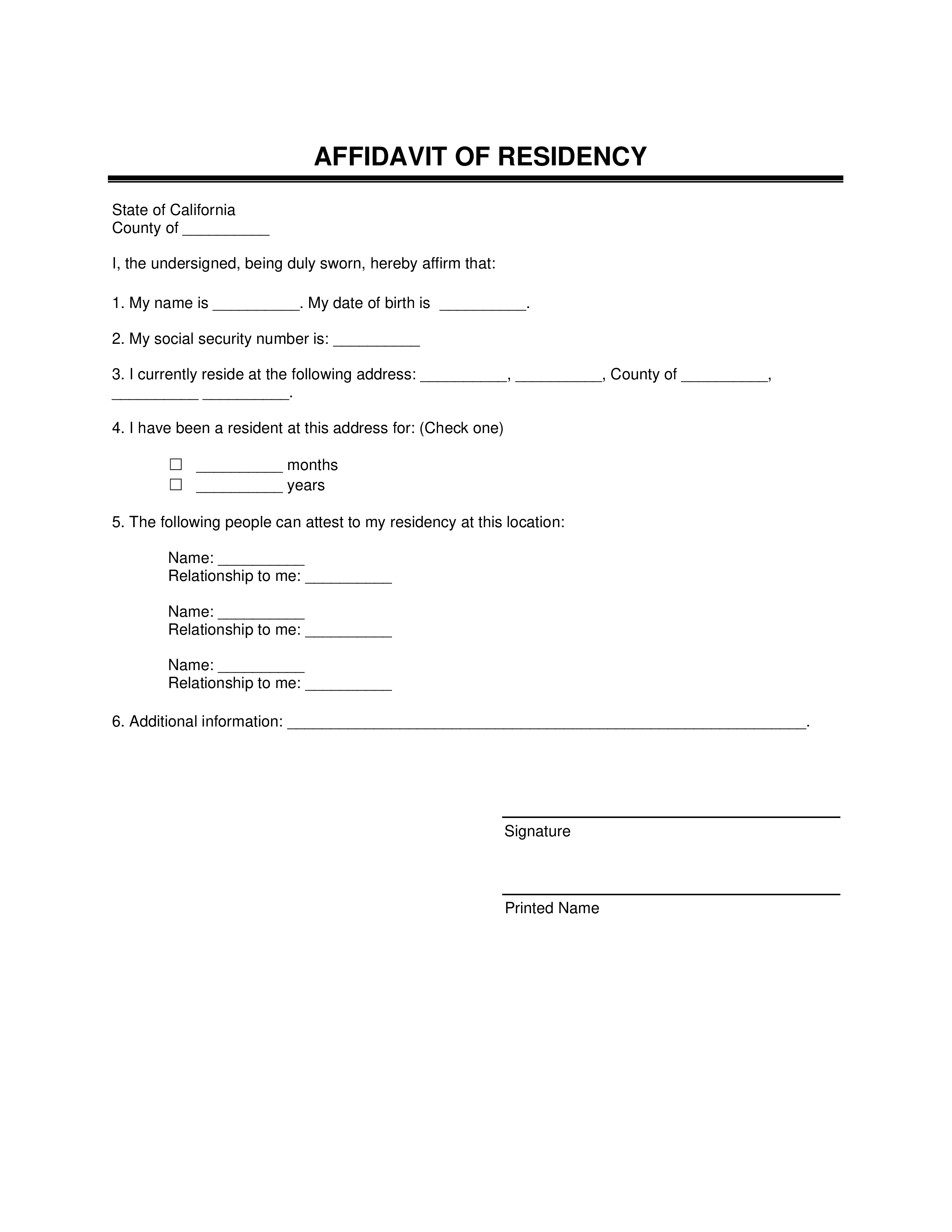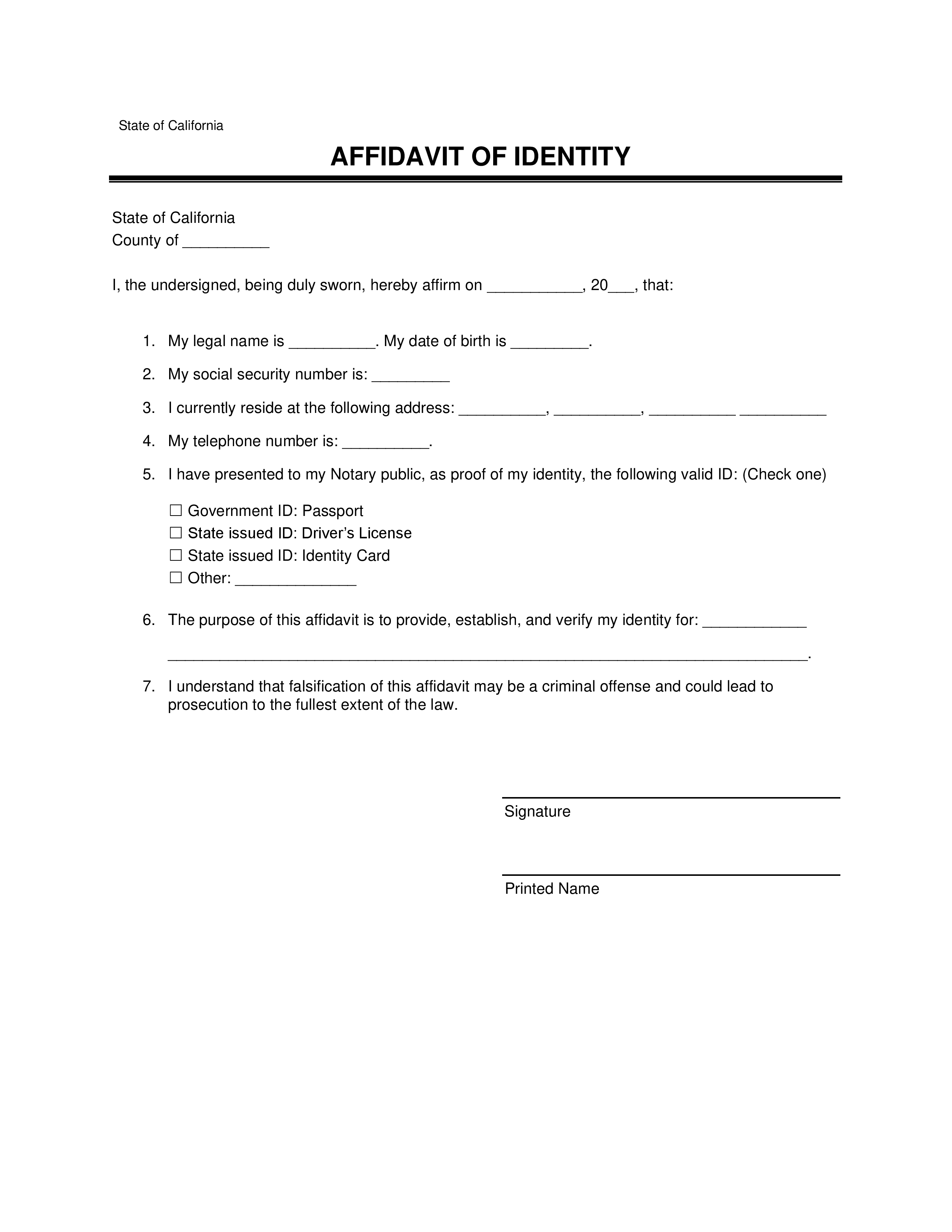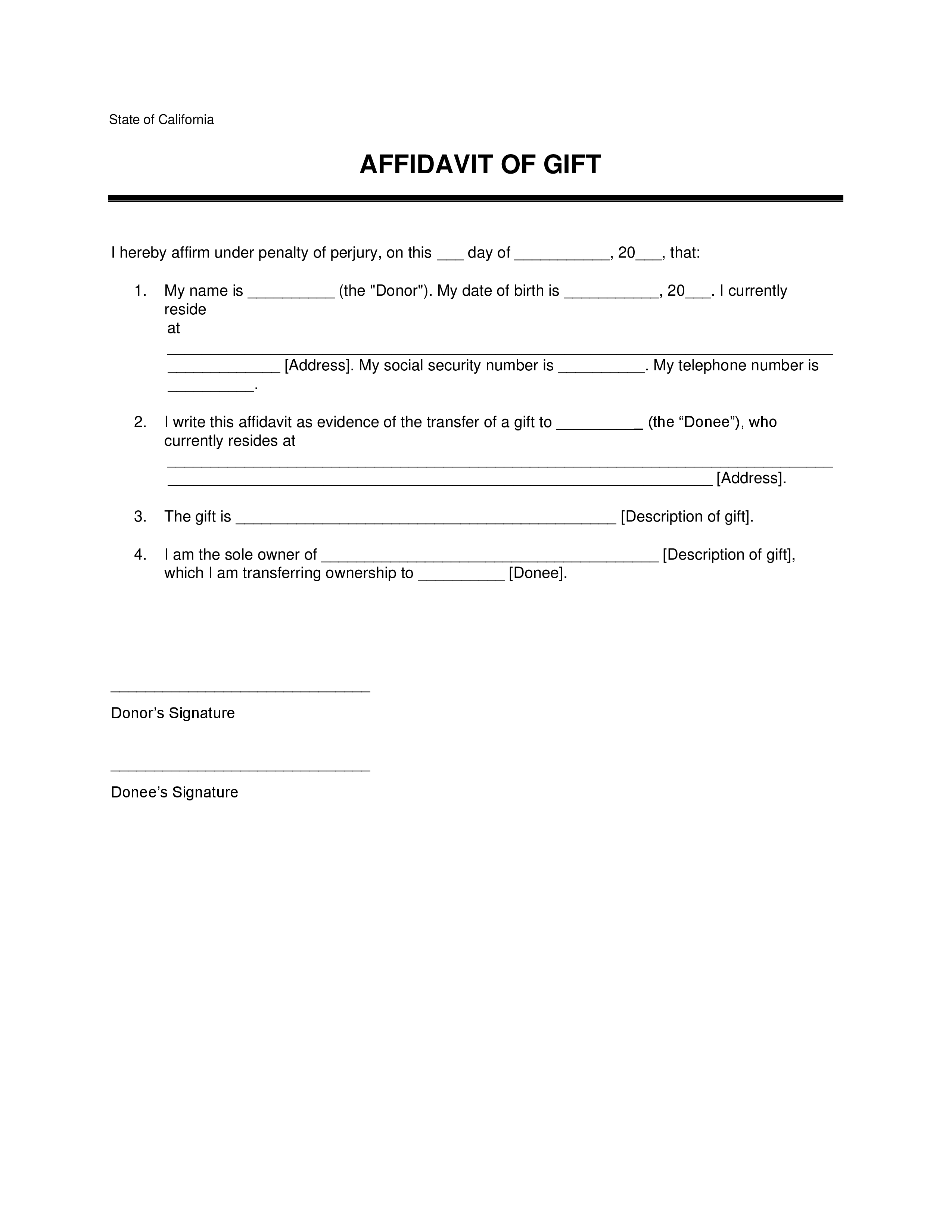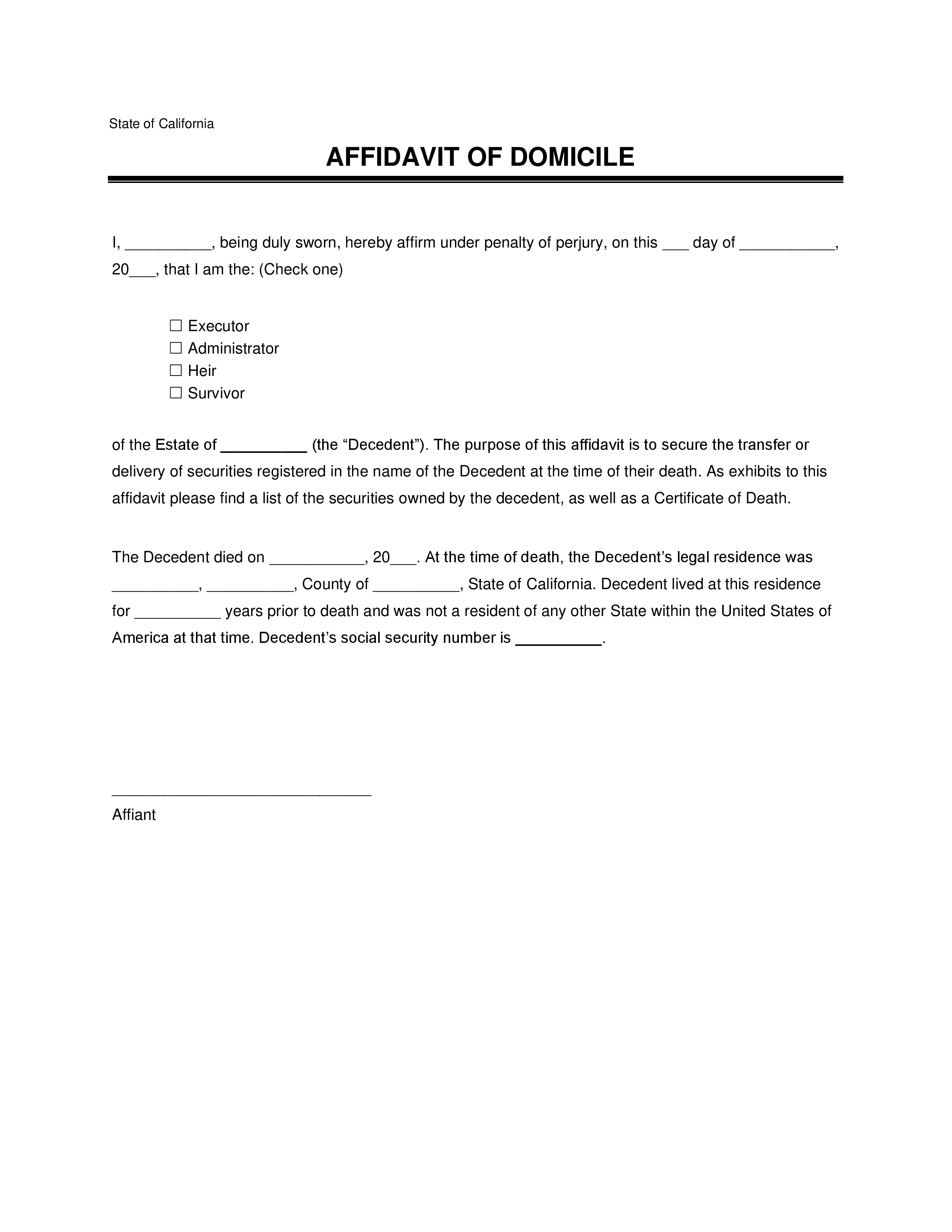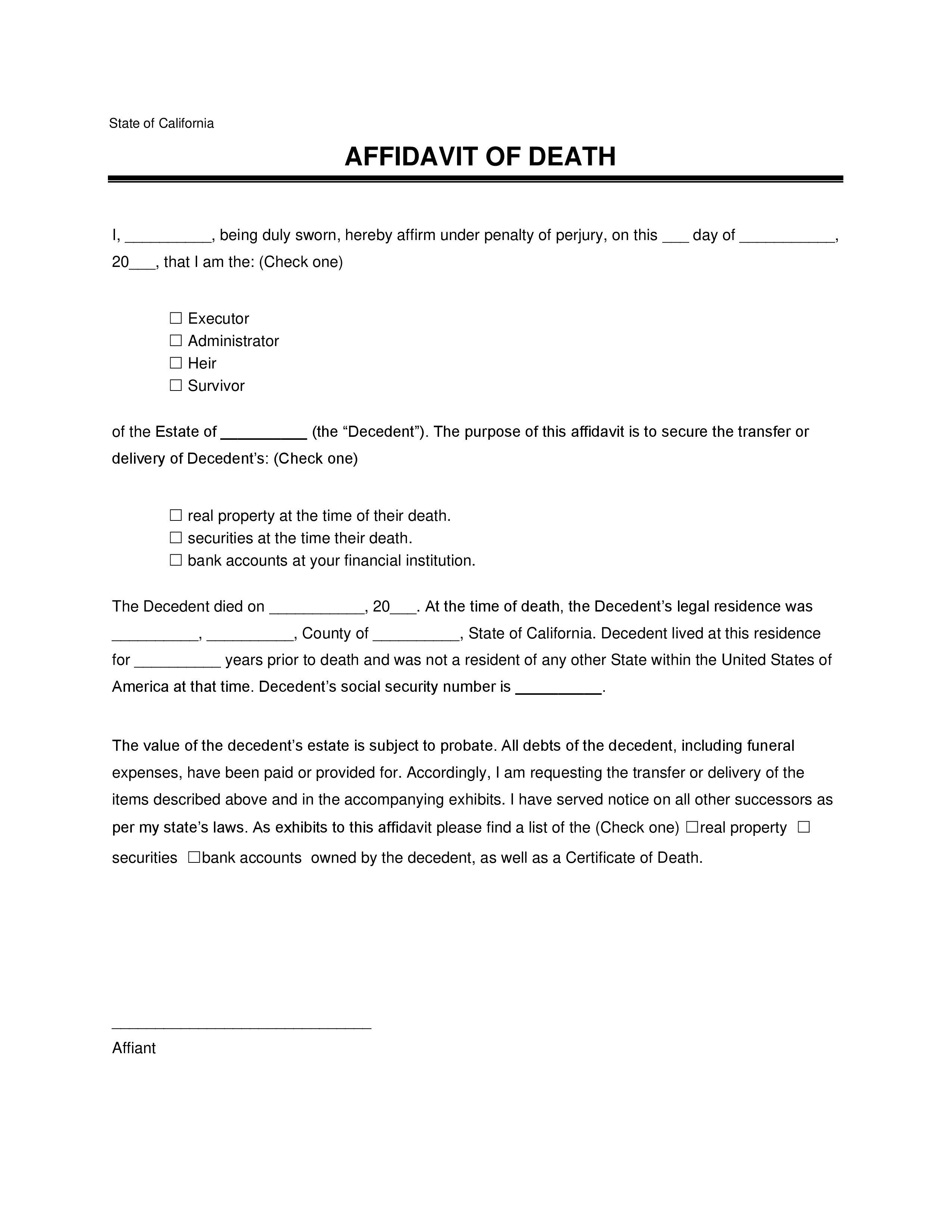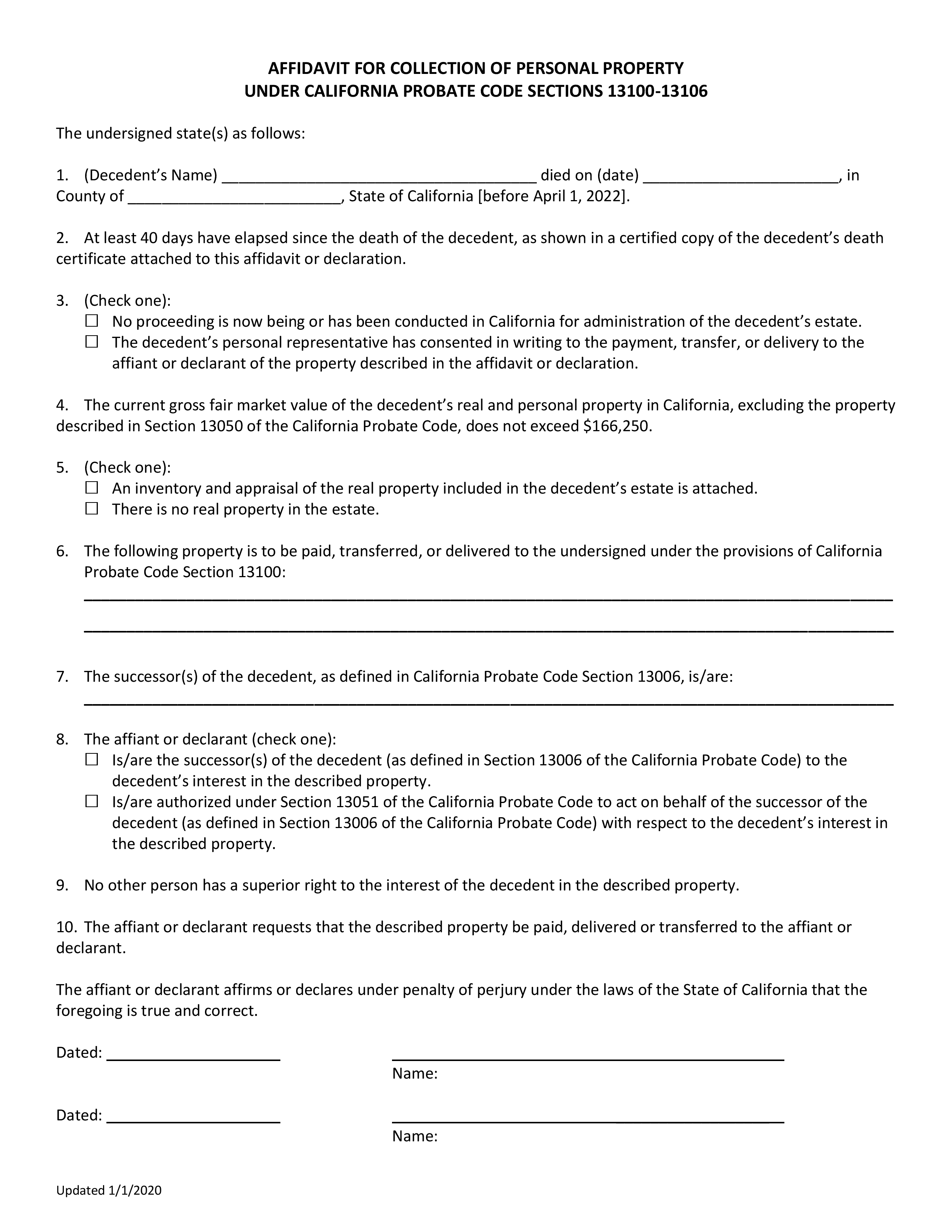Free California Affidavits Forms
An affidavit is a statement indicating the content therein is true and can be used in legal proceedings. Affidavits are used in various scenarios such as verification of financial details, properties, business documents, death or birth verification, or as a witness.
California Affidavits Quick Links
Regardless of what type of affidavit one may need, there is some information that is always needed. It includes:
- Name and address of the affiant
- Age and birthday
- Any other identifying information including work/occupation information
- Location and date of the signing
True and concise statements should be written in the affidavit as false information attracts harsh repercussions. According to California law, the affidavits must be signed under oath. It can be executed by a notary or certified agents such as judges.
(10) Free California Affidavits Forms to Download
California Financial Affidavit
California Affidavit of Caregiver’s Authorization
California Affidavit of Title
California Affidavit of Residency
California Affidavit of Identity
California Affidavit of Gift
California Affidavit of Domicile
California Affidavit of Death
California Affidavit for Collection of Personal Property
Affidavit Laws
Affidavits are governed by laws found under the 2009 California Code of Civil Procedure – Section 2009-2015.6.
Frequently Asked Questions
Who is referred to as the affiant?
The person who swears the affidavit is the one referred to as the affiant. They can also be referred to as the deponent.
The person who swears the affidavit is the one referred to as the affiant. They can also be referred to as the deponent.
Who can make an affidavit and for what purpose?
An affidavit can be made by a witness, an expert in a relevant case, an applicant or plaintiff or a respondent/defendant. The affidavits are made to verify business documents, birth, and death, financial details, for witnesses in a case among other things.
An affidavit can be made by a witness, an expert in a relevant case, an applicant or plaintiff or a respondent/defendant. The affidavits are made to verify business documents, birth, and death, financial details, for witnesses in a case among other things.
Do affidavits in California need notarization?
Yes. All affidavits in California require to be sworn under the oath. They are executed by notary public or certified agents such as judges for confirmation of the veracity of the stated information.
Yes. All affidavits in California require to be sworn under the oath. They are executed by notary public or certified agents such as judges for confirmation of the veracity of the stated information.
Are affidavits used in courts only?
The sworn statements are used in court proceedings or negotiations. Mostly, they are used in bankruptcy cases and family law. Where need be, they are used in criminal and civil cases.
The sworn statements are used in court proceedings or negotiations. Mostly, they are used in bankruptcy cases and family law. Where need be, they are used in criminal and civil cases.
Can an affidavit be considered a legally binding?
Yes. The affidavit is created by a person of sound mind who signs the legal document by themselves and is sworn under the oath before a judge or by the notary public.
Yes. The affidavit is created by a person of sound mind who signs the legal document by themselves and is sworn under the oath before a judge or by the notary public.
Is an affidavit same as a declaration?
No. An affidavit is a sworn statement that confirms the statements are true under the oath. Declarations are written statements which the author believes to be true but are not sworn before a notary public or a judge.
No. An affidavit is a sworn statement that confirms the statements are true under the oath. Declarations are written statements which the author believes to be true but are not sworn before a notary public or a judge.
Does an affidavit need to be witnessed?
Yes. The witness in the affidavit is the person who authorizes the statements to affirm that the sworn statements are true. In this case, it is either the notary public or authorized agents such as judges.
Yes. The witness in the affidavit is the person who authorizes the statements to affirm that the sworn statements are true. In this case, it is either the notary public or authorized agents such as judges.
Can an affidavit be used as evidence?
An affidavit can be used as evidence if it is testified. It cannot be used for evidence if there are objections because hearsay is not admissible as an evidence.
An affidavit can be used as evidence if it is testified. It cannot be used for evidence if there are objections because hearsay is not admissible as an evidence.
Can an affidavit taken outside California be used in California?
Yes. However, the affidavit should have been taken in any other state of the United States. It should also be taken before a commissioner appointed by the governor of California State.
Yes. However, the affidavit should have been taken in any other state of the United States. It should also be taken before a commissioner appointed by the governor of California State.
Are affidavits taken in foreign countries used in California?
An affidavit taken in a foreign country for use in California requires to be taken either before a consular agent of the United States, minister, ambassador, judge of a court of record having a seal in the foreign country, consul, or a vice-consul.
An affidavit taken in a foreign country for use in California requires to be taken either before a consular agent of the United States, minister, ambassador, judge of a court of record having a seal in the foreign country, consul, or a vice-consul.

